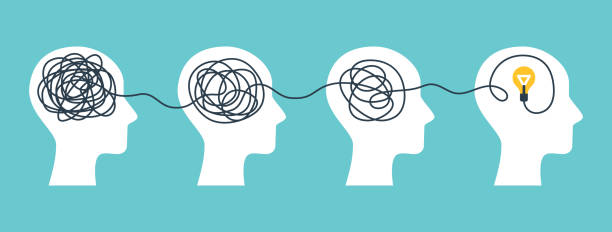What is EMDR?
EMDR stands for “Eye-Movement Desensitization and Reprocessing” and is a non-drug, non-hypnosis, non-evasive and evidence-based psychotherapy procedure. The therapist guides the client in concentrating on a troubling memory or emotion while moving the eyes rapidly back and forth by following the therapist's fingers. It is a well-researched and highly developed way to work with people who have experienced disturbing events in their lives and for whom the bad feelings, images and memories don’t just go away.
What is it used for?
EMDR can be used to treat disturbing memories, panic attacks, sexual and/or physical abuse, stress reduction, depression, guilt, anger and post-traumatic reactions.
How does EMDR work?
When a person is very upset, their brain cannot process information as it does ordinarily. A traumatic moment becomes "frozen in time," and remembering a trauma may feel as bad as going through it the first time because the images, sounds, smells, and feelings haven’t changed. Such memories have a lasting negative effect that interferes with the way a person sees the world and the way they relate to other people.
EMDR seems to have a direct effect on the way that the brain processes information. Normal information processing is resumed, so following one or more successful EMDR sessions, a person no longer relives the images, sounds, and feelings when the event is brought to mind. You still remember what happened, but it is less upsetting. Many types of therapy have similar goals. However, EMDR appears to be similar to what occurs naturally during dreaming or REM (rapid eye movement) sleep. Therefore, EMDR can be thought of as a physiologically based therapy that helps a person see disturbing material in a new and less distressing way.
Read more about the process of EMDR at the EMDRIA webiste.
How much does EMDR cost?
One hour EMDR sessions cost the same as traditional talking therapy. The cost will vary depending on your insurance plan. You will pay your mental health outpatient co-pay/co-insurance/deductible cost.
How long are EMDR sessions?
The research on EMDR was based on 90 minute sessions. However, due to insurance limitations, EMDR is typically done within the time frame allowed by insurance for an outpatient visit which is between 53 to 60 minutes.
If you'd like to have 90 minute EMDR sessions and are using insurance, you can pay out of pocket for the the additional time beyond one hour. The cost would be $75 for the additional thirty minutes.
Do you offer EMDR Intensives?
Yes, I do! EMDR intensives are conducted in various back to back hours of EMDR completed over the course of a few days instead of weekly one hour sessions. You can learn more about this here: EMDR Intensives
Are you EMDR certified?
Yes, I am an EMDR Certified Therapist which means I have completed additional levels of continuing education and consultation in EMDR beyond those that are only "EMDR Trained". An EMDR Certified Therapist has:
- an advanced degree from an accredited college or university
- are fully licensed in their mental health professional field for independent practice
- have a minimum two years of experience in that field
- completed an EMDR International Association approved training program in EMDR therapy
- has had a minimum of 50 clinical sessions in which EMDR was utilized
- obtained 20 hours of consultation in EMDR by an Approved Consultant
- and to maintain the credential, EMDR International Association Certified Therapists must complete twelve hours of continuing education in EMDR every two years.

